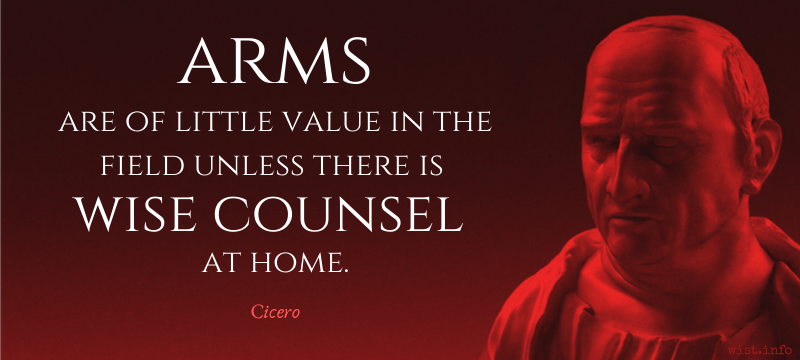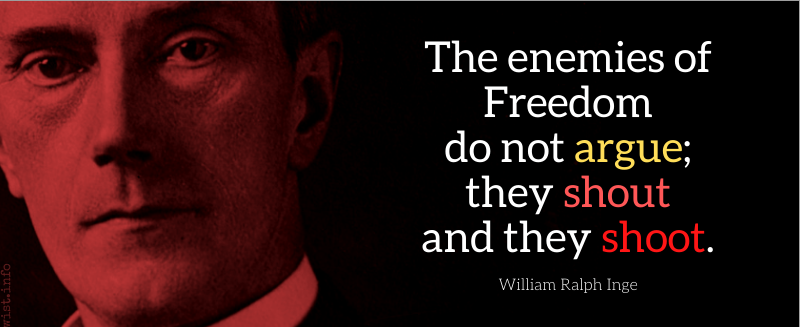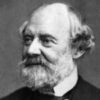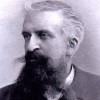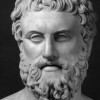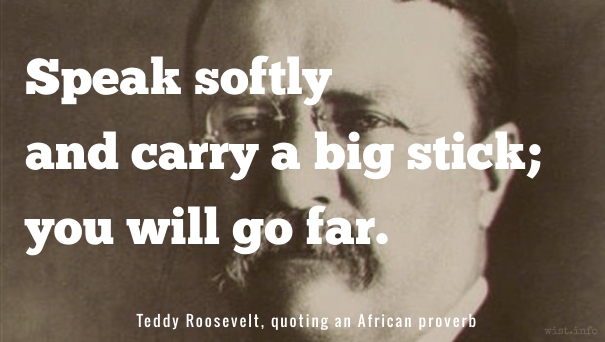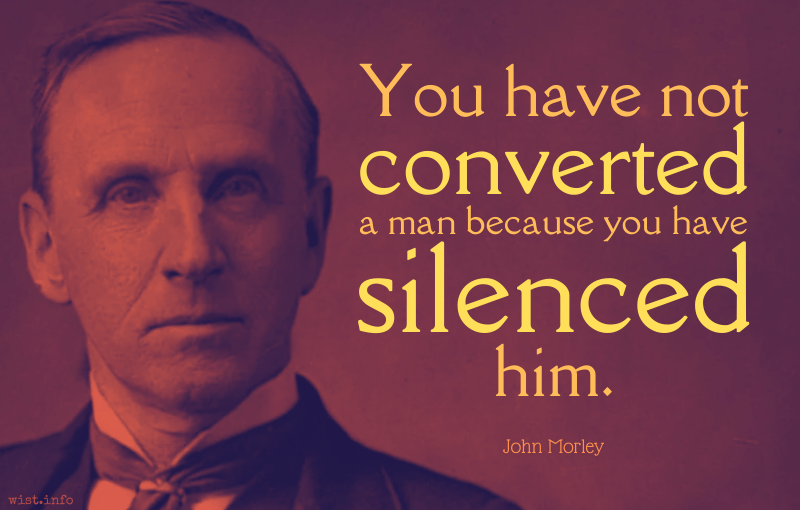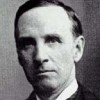I do not think military readiness, in itself, will defeat Communism. I do not think we can consider the job finished with that. I think it buys us time to do the bigger job. We must demonstrate that it is possible to overcome poverty, misery and decay by democratic means, and that we must ourselves believe, and must show others, that our American tradition of the dignity and liberty of the individual is not a luxury for easy times but is the basic source of strength and security of a successful society.
Jane Jacobs (1916-2006) American-Canadian journalist, author, urban theorist, activist
“No Virtue in Meek Conformity” (1952)
(Source)
Foreword to her response to a State Department Loyalty Security Board interrogatory (1952-03-25). Reprinted in Vital Little Plans (2016).
Quotations about:
force
Note not all quotations have been tagged, so Search may find additional quotes on this topic.
And I have known small cities, who revere
The Gods, made subject to unrighteous power,
Vanquish’d by spears more numerous.[πόλεις τε μικρὰς οἶδα τιμώσας θεούς,
αἳ μειζόνων κλύουσι δυσσεβεστέρων
λόγχης ἀριθμῷ πλείονος κρατούμεναι.]Euripides (485?-406? BC) Greek tragic dramatist
Bellerophon [Βελλεροφῶν], frag. 286 (TGF) (c. 430 BC) [tr. Wodhull (1809)]
(Source)
Nauck (TGF) frag. 286, Barnes frag. 8, Musgrave frag. 25. (Source (Greek)). Alternate translations:
I know too of small cities doing honour to the gods which are subject to larger, more impious ones, because they are overcome by a more numerous army.
[tr. Collard, Hargreaves, Cropp (1995)]
I see minor states that honor gods subject to greater ones that revere none, for ‘might is right’.
[tr. Stevens (2012)]
I know small cities honouring the gods that obey larger and more impious ones since they are outnumbered in spearmen.
[tr. Dixon (2014)]
I know that small cities honor the gods,
Cities that obey stronger more impious men
Because they are overpowered by the strength of their arms.
[tr. @sentantiq (2015)]
I know of small cities where the gods are honored: yet these same cities are forced to comply with the demands of impious men in larger cities, overpowered by the sheer magnitude of their armament.
[tr. Emerson]
For when the faculty of intellect
is joined with brute force and with evil will,
no man can win against such an alliance.[Ché dove l’argomento de la mente
s’aggiugne al mal volere e a la possa,
nessun riparo vi può far la gente.]Dante Alighieri (1265-1321) Italian poet
The Divine Comedy [Divina Commedia], Book 1 “Inferno,” Canto 31, l. 55ff (31.55) (1309) [tr. Musa (1971)]
(Source)
Why Nature no longer allows human-like giants, while still producing whales and elephants.
(Source (Italian)). Alternate translations:
For where the mind to bad Intention's join'd,
And with a Pow'r what's ill design'd to act,
None can himself from such a force defend.
[tr. Rogers (1782), l. 49ff]
But not the forest tribes, nor finny race,
With equal rage their native walks deface,
As he whose deadly arm by Reason's light
Directed falls, and mocks the warding hand;
Conspiring realms in vain his pow'r withstand,
In vain embattled hosts defend their right.
[tr. Boyd (1802), st. 9]
For when brute force
And evil will are back’d with subtlety,
Resistance none avails.
[tr. Cary (1814)]
For discourse of mind,
Wedded with power and inbred lust of wrong,
Had left nor help nor rescue for mankind.
[tr. Dayman (1843)]
For where [the instrument] of [the] mind is joined to evil will and potency, men can make no defence against it.
[tr. Carlyle (1849)]
For when a reasoning and a subtle mind
Is joined, besides, to evil will and power,
Who can resist? -- for all defence must cower.
[tr. Bannerman (1850)]
For when the reasoning faculty combines
With evil will and with destructive pow'r,
Then there remains no more defence for man.
[tr. Johnston (1867)]
For where the argument of intellect
Is added unto evil will and power,
No rampart can the people make against it.
[tr. Longfellow (1867)]
For where the equipment of the mind is joined to illwill and to power, folk can make no rampart against it.
[tr. Butler (1885)]
For where the assistance of the intellect
Is added unto evil will and power,
'Gainst it no refuge could mankind erect.
[tr. Minchin (1885)]
For where the faculty of the mind is added to evil will and to power, the human race can make no defense against it.
[tr. Norton (1892)]
For where the force of intellect is joined to evil will, and power to do such will, mankind is helpless to find resource against it.
[tr. Sullivan (1893)]
For, where the equipment and the use of reason
Are joined to ill intent and power of action,
No sort of refuge can folk make against it.
[tr. Griffith (1908)]
For where the equipment of the mind is joined to evil will and to power men can make no defence against it.
[tr. Sinclair (1939)]
For if with the mind's instrument unite
Power and an evil purpose both at once,
Men have no means against such force to fight.
[tr. Binyon (1943)]
For where the instrument of thinking mind
Is joined to strength and malice, man’s defence
Cannot avail to meet those powers combined.
[tr. Sayers (1949)]
For where the instrument of intelligence
is added to brute power and evil will,
mankind is powerless in its own defense.
[tr. Ciardi (1954)]
For where the instrument of the mind is added to an evil will and to great power, men can make no defense against it.
[tr. Singleton (1970)]
For where the mind’s acutest reasoning
is joined to evil will and evil power,
there human beings can’t defend themselves.
[tr. Mandelbaum (1980)]
For, where the argument of reason is
Joined with an evil will and potency,
There is no possible defence for man.
[tr. Sisson (1981)]
The power of the mind, along with that
Of immense strength, upon an evil will
Then people will have no defense from it.
[tr. Pinsky (1994), l. 52ff]
For where sharpness of mind is joined to evil will and power, there is no defence people can make against them.
[tr. Durling (1996)]
Where the instrument of mind is joined to ill will and power, men have no defence against it.
[tr. Kline (2002)]
For when the powers of working intellect
are wed to strength and absolute illwill,
then humans cannot find a place to hide.
[tr. Kirkpatrick (2006)]
For when the power of thought
is coupled with ill will and naked force
there is no refuge from it for mankind.
[tr. Hollander/Hollander (2007)]
For when the thinking powers of human brains
Are tools of malicious will and enormous strength,
Smaller creatures like men have no defense.
[tr. Raffel (2010)]
For only when ill will and massive strength
Are joined with mental power does it arise
That the invincible is born.
[tr. James (2013), l. 58ff]
Kind-hearted people might of course think there was some ingenious way to disarm or defeat the enemy without too much bloodshed, and might imagine this is the true goal of the art of war. Pleasant as it sounds, it is a fallacy that must be exposed: War is such a dangerous business that mistakes that come from kindness are the very worst.
[Nun könnten menschenfreundliche Seelen sich leicht denken, es gebe ein künstliches Entwaffnen oder Niederwerfen des Gegners, ohne zuviel Wunden zu verursachen, und das sei die wahre Tendenz der Kriegskunst. Wie gut sich das auch ausnimmt, so muß man doch diesen Irrtum zerstören, denn in so gefährlichen Dingen, wie der Krieg eins ist, sind die Irrtümer, welche aus Gutmütigkeit entstehen, gerade die schlimmsten.]
Karl von Clausewitz (1780-1831) Prussian soldier, historian, military theorist
On War [Vom Kriege], Book 1, ch. 1 “What Is War? [Was ist der Krieg?],” § 3 (1.1.3) (1832) [tr. Howard & Paret (1976)]
(Source)
(Source (German)). Alternate translations:
Now, philanthropists may easily imagine there is a skilful method of disarming and overcoming an enemy without causing great bloodshed, and that this is the proper tendency of the art of War. However plausible this may appear, still it is an error which must be extirpated; for in such dangerous things as war, the errors which proceed from a spirit of benevolence are just the worst.
[tr. Graham (1873)]
Now philanthropic souls might easily imagine that there was an artistic way of disarming or overthrowing our adversary without too much bloodshed and that this was what the art of war should seek to achieve. However agreeable this may sound, it is a false idea which must be demolished. In affairs so dangerous as war, false ideas proceeding from kindness of heart are precisely the worst.
[tr. Jolles (1943)]
War is an act of violence, which in its application knows no bounds
[Der Krieg ist ein Akt der Gewalt, und es gibt in der Anwendung derselben keine Grenzen.]
Karl von Clausewitz (1780-1831) Prussian soldier, historian, military theorist
On War [Vom Kriege], Book 1, ch. 1 “What Is War? [Was ist der Krieg?],” § 3 (1.1.3) (1832) [tr. Graham (1873)]
(Source)
(Source (German)). Alternate translations:
War is an act of violence pushed to its utmost bounds.
[tr. Graham/Maude (1908)]
War is an act of force, and to the application of that force there is no limit.
[tr. Jolles (1943)]
War is an act of force, and there is no logical limit to the application of that force.
[tr. Howard & Paret (1976)]
War is nothing but a duel on a larger scale. Countess duels go to make up a war, but a picture of it as a whole can be formed by imagining a pair of wrestlers. Each tries through physical force to compel the other to do his will; his immediate aim is to throw his opponent in order to make him incapable of further resistance. War is thus an act of force to compel the enemy to do our will.
[Der Krieg ist nichts als ein erweiterter Zweikampf. Wollen wir uns die Unzahl der einzelnen Zweikämpfe, aus denen er besteht, als Einheit denken, so tun wir besser, uns zwei Ringende vorzustellen. Jeder sucht den anderen durch physische Gewalt zur Erfüllung seines Willens zu zwingen; sein nächster Zweck ist, den Gegner niederzuwerfen und dadurch zu jedem ferneren Widerstand unfähig zu machen. Der Krieg ist also ein Akt der Gewalt, um den Gegner zur Erfüllung unseres Willens zu zwingen.]
Karl von Clausewitz (1780-1831) Prussian soldier, historian, military theorist
On War [Vom Kriege], Book 1, ch. 1 “What Is War? [Was ist der Krieg?],” § 2 (1.1.2) (1832) [tr. Howard & Paret (1976)]
(Source)
(Source (German)). Alternate translations:
War is nothing but a duel on an extensive scale. If we would conceive as a unit the countless number of duels which make up a war, we shall do so best by supposing to ourselves two wrestlers. Each strives by physical force to compel the other to submit to his will: his first object is to throw his adversary, and thus to render him incapable of further resistance. War therefore is an act of violence to compel our opponent to fulfil our will.
[tr. Graham (1873)]
War is nothing but a duel on a larger scale. If we would combine into one conception the countless separate duels of which it consists, we would do well to think of two wrestlers. Each tries by physical force to compel the other to do his will; his immediate object is to overthrow his adversary and thereby make him incapable of any further resistance. War is thus an act of force to compel our adversary to do our will.
[tr. Jolles (1943)]
The object of what we call deportment and good manners is to attain that which can otherwise be attained only by force or not even by force.
[Durch das, was wir Betragen und gute Sitten nennen, soll das erreicht werden, was außerdem nur durch Gewalt, oder auch nicht einmal durch Gewalt zur erreichen ist.]
Johann Wolfgang von Goethe (1749-1832) German poet, statesman, scientist
Elective Affinities [Die Wahlverwandtschaften], Part 2, ch. 5, “From Ottilie’s Journal [Aus Ottiliens Tagebuche]” (1809) [tr. Hollingdale (1971)]
(Source)
(Source (German)). Alternate translation:
That which we call politeness and good breeding effects what otherwise can only be obtained by violence, or not even that.
[Niles ed. (1872)]
You may force men, by interest or punishment, to say or swear they believe, and to act as if they believed; you can go no farther.
Let the rigour of a master over his slaves be applied by those who hold men under the empire of oppression; but they who rule by the principle of fear in a free state, practice a system of unparalleled madness. […] Let us therefore embrace that mode of conduct which has the most extensive influence, which contributes most, not only to the safety, but to the increase of wealth and power, and which rests, not upon fear, but upon the continuation of kind affections. — This is the method by which not only in private, but in public, we shall most easily obtain what we desire.
[Sed iis, qui vi oppresses imperio coercent, sit sane adhibenda saevitia, ut eris in famulos, si aliter teneri non possunt; qui vero in libera civitate ita se instruunt, ut metuantur, iis nihil potest esse dementius. […] Quod igitur latissime patet neque ad incolumitatem solum, sed etiam ad opes et potentiam valet plurimum, id amplectamur, ut metus absit, caritas retineatur. Ita facillime, quae volemus, et privatis in rebus et in re publica consequemur.]
Marcus Tullius Cicero (106-43 BC) Roman orator, statesman, philosopher
De Officiis [On Duties; On Moral Duty; The Offices], Book 2, ch. 7 (2.7) / sec. 24 (44 BC) [tr. McCartney (1798)]
(Source)
(Source (Latin)). Alternate translations:
It is well enough in those who by open force have reduced any nation, and accordingly rule it with a high hand, if they do sometimes use rigour and severity, like masters towards their slaves when there is no other way of holding them in subjection: but for those who are magistrates in a free city, to endeavour to make themselves feared by the people, is one of the maddest and most desperate attempts on the face of the earth. [...] Let us therefore embrace and adhere to that method which is of the most universal influence, and serves not only to secure us what we have, but moreover to enlarge our power and authority; that is, in short, let us rather endeavour to be loved than feared, which is certainly the best way to make us successful, as well in our private as our public business.
[tr. Cockman (1699)]
But the truth is, cruelty must be employed by those who keep others in subjection by force; as by a master to his slaves, if they cannot otherwise be managed. But of all madmen, they are the maddest who, in a free state so conduct themselves as to be feared. [...] We ought therefore to follow this most obvious principle, that dread should be removed and affection reconciled, which has the greatest influence not only on our security but also on our interest and power; and thus we shall most easily attain to the object of our wishes, both in private and political affairs.
[tr. Edmonds (1865)]
Those who hold under their command subjects forcibly kept down must indeed resort to severity, as masters toward their slaves when they cannot otherwise be restrained. But nothing can be more mad than the policy of those who in a free state conduct themselves in such a way as to be feared. [...] Let us then embrace the policy which has the widest scope, and is most conducive, not to safety alone, but to affluence and power, namely, that by which fear may be suppressed, love retained. Thus shall we most easily obtain what we desire both in private and in public life.
[tr. Peabody (1883)]
Let tyrants exercise cruelty, as a master does towards his slaves when he cannot control them by other means: but for a Citizen of a free State to equip himself with the weapons of intimidation is the height of madness. [...] Let us then put away fear and cleave to love; love appeals to every heart, it is the surest means of gaining safety, influence and power; in a word, it is the key to success both in private and in public life.
[tr. Gardiner (1899)]
But those who keep subjects in check by force would of course have to employ severity -- masters, for example, toward their servants, when these cannot be held in control in any other way. But those who in a free state deliberately put themselves in a position to be feared are the maddest of the mad. [...] Let us, then, embrace this policy, which appeals to every heart and is the strongest support not only of security but also of influence and power -- namely, to banish fear and cleave to love. And thus we shall most easily secure success both in private and in public life.
[tr. Miller (1913)]
Men who dominate and command other men, whom they have subjugated by force, have to apply some harshness, just as the owner uses harshness toward his slaves if he cannot control them any other way. But it is completely senseless for men in a free city act in such a way that it causes others to live in fear: no one could be more insane. [...] So let us embrace a rule that applies widely and that is extremely effective not only maintaining safety but also in acquiring wealth and power, namely, that there should be no fear, that one should hold affection dear. This is the easiest way for ust to attain what we want both in private affairs and in the government.
[tr. Edinger (1974)]
One does not export democracy in an armored vehicle.
[On n’exporte pas la démocratie dans un fourgon blindé.]
By force you can make hypocrites — men who will agree with you from the teeth out, and in their hearts hate you. We want no more hypocrites. We have enough in every community. And how are you going to keep from having more? By having the air free, — by wiping from your statute books such miserable and infamous laws as this.
Robert Green Ingersoll (1833-1899) American lawyer, agnostic, orator
Speech to the Jury, Trial of C. B. Reynolds for Blasphemy, Morristown, New Jersey (May 1887)
(Source)
You can stand with the lash over a man, or you can stand by the prison door, or beneath the gallows, or by the stake, and say to this man: “Recant, or the lash descends, the prison door is locked upon you, the rope is put about your neck, or the torch is given to the fagot.” And so the man recants. Is he convinced? Not at all. Have you produced a new argument? Not the slightest. And yet the ignorant bigots of this world have been trying for thousands of years to rule the minds of men by brute force. They have endeavored to improve the mind by torturing the flesh — to spread religion with the sword and torch. They have tried to convince their brothers by putting their feet in iron boots, by putting fathers, mothers, patriots, philosophers and philanthropists in dungeons. And what has been the result? Are we any nearer thinking alike to-day than we were then?
Robert Green Ingersoll (1833-1899) American lawyer, agnostic, orator
Speech to the Jury, Trial of C. B. Reynolds for Blasphemy, Morristown, New Jersey (May 1887)
(Source)
For thousands of years people have been trying to force other people to think their way. Did they succeed? No. Will they succeed? No. Why? Because brute force is not an argument.
Robert Green Ingersoll (1833-1899) American lawyer, agnostic, orator
Speech to the Jury, Trial of C. B. Reynolds for Blasphemy, Morristown, New Jersey (May 1887)
(Source)
Jesus was not brought down by atheism and anarchy. He was brought down by law and order allied with religion, which is always a deadly mix. Beware of those who claim to know the mind of God and who are prepared to use force, if necessary, to make others conform. Beware of those who cannot tell God’s will from their own. Temple police are always a bad sign. When chaplains start wearing guns and hanging out at the sheriff’s office, watch out. Someone is about to have no king but Caesar.
Barbara Brown Taylor (b. 1951) American minister, academic, author
“The Perfect Mirror,” Christian Century (18-25 Mar 1998)
(Source)
Shake and shake
The catsup bottle,
None will come,
And then a lot’ll.
If we stay strong, then I believe we can stabilize the world and have peace based on force. Now, peace based on force is not as good as peace based on agreement, but in the terrible world in which we live, in the world where the Russians have enslaved many millions of human beings, in the world where they have killed men, I think that for the time being the only peace we can have is the peace based on force.
Edward Teller (1908-2003) Hungarian-American theoretical physicist
“Fallout and Disarmament: A Debate Between Linus Pauling and Edward Teller,” KQED-TV, San Francisco (20 Feb 1958)
(Source)
For arms are of little value in the field unless there is wise counsel at home.
[Parvi enim sunt foris arma, nisi est consilium domi.]
Marcus Tullius Cicero (106-43 BC) Roman orator, statesman, philosopher
De Officiis [On Duties; On Moral Duty; The Offices], Book 1, ch. 22 (1.22) / sec. 76 (44 BC) [tr. Miller (1913)]
(Source)
Peabody comments, "A verse, quoted probably from some lost comedy, the measure being one employed by the comic poets." None of the other translators call this out or show the text as separate except Peabody.
(Source (Latin)). Alternate translations:
For armies can signify but little abroad, unless there be counsel and wise management at home.
[tr. Cockman (1699)]
Armies abroad avail little, unless there be wisdom at home.
[tr. McCartney (1798)]
An army abroad is but of small service unless there be a wise administration at home.
[tr. Edmonds (1865)]
Valor abroad is naught, unless at home be wisdom.
[tr. Peabody (1883)]
An army in the field is nothing without wisdom at home.
[tr. Gardiner (1899)]
For weapons have small value abroad unless there is good advice at home.
[tr. Edinger (1974)]
KING : Am I the strongest or am I not?
BECKET: You are, today. But one must never drive one’s enemy to despair. It makes him strong. Gentleness is better politics. It saps virility. A good occupational force must never crush, it must corrupt.Jean Anouilh (1910-1987) French dramatist
Becket, Act 2 (1959) [tr. Hill (1961)
(Source)
The lines remain intact in Edward Anhalt's 1964 screenplay.
The chief reason warfare is still with us is neither a secret death-wish of the human species, nor an irrepressible instinct of aggression, nor, finally and more plausibly, the serious economic and social dangers inherent in disarmament, but the simple fact that no substitute for this final arbiter in international affairs has yet appeared on the political scene.
Hannah Arendt (1906-1975) German-American philosopher, political theorist
“On Violence,” Crises of the Republic (1972)
(Source)
Necessity is the only successful adviser.
Charles Reade (1814-1884) English novelist and dramatist
(Attributed)
(Source)
In M. Ballou, Edge-Tools of Speech (1886).
Some people idealize force and pull it into the foreground and worship it, instead of keeping it in the background as long as possible. I think they make a mistake, and I think that their opposites, the mystics, err even more when they declare that force does not exist. I believe that it exists, and that one of our jobs is to prevent it from getting out of its box. It gets out sooner or later, and then it destroys us and all the lovely things which we have made. But it is not out all the time, for the fortunate reason that the strong are so stupid.
I realize that all society rests upon force. But all the great creative actions, all the decent human relations, occur during the intervals when force has not managed to come to the front. These intervals are what matter. I want them to be as frequent and as lengthy as possible, and I call them “civilization”.
E. M. Forster (1879-1970) English novelist, essayist, critic, librettist [Edward Morgan Forster]
“What I Believe,” The Nation (16 Jul 1938)
(Source)
Every man has a certain sphere of discretion, which he has a right to expect shall not be infringed by his neighbors. This right flows from the very nature of man. First, all men are fallible: no man can be justified in setting up his judgment as a standard for others. We have no infallible judge of controversies; each man in his own apprehension is right in his decisions; and we can find no satisfactory mode of adjusting their jarring pretensions. If every one be desirous of imposing his sense upon others, it will at last come to be a controversy, not of reason, but of force.
William Godwin (1756-1836) English journalist, political philosopher, novelist
Enquiry Concerning Political Justice, Book 2, ch. 5 (1793)
(Source)
Money is said to be power, which is, in some cases, true; and the same may be said of knowledge; but superior sobriety, industry and activity, are a still more certain source of power; for without these, knowledge is of little use; and, as to the power which money gives, it is that of brute force, it is the power of the bludgeon and the bayonet, and of the bribed press, tongue and pen.
William Cobbett (1763-1835) English politician, agriculturist, journalist, pamphleteer
Advice to Young Men, Letter 1, #40 (1829)
(Source)
The proper method for hastening the decay of error is not by brute force, or by regulation which is one of the classes of force, to endeavor to reduce men to intellectual uniformity, but on the contrary by teaching every man to think for himself.
William Godwin (1756-1836) English journalist, political philosopher, novelist
Enquiry Concerning Political Justice, Vol. 2, bk. 8, ch. 6 “Of the Enjoyment of Liberty” (1793)
(Source)
Might was the measure of right.
[Mensuraque juris / Vis erat.]
Lucan (AD 39-65) Roman poet [Marcus Annaeus Lucanus]
Pharsalia, 1.175
(Source)
Referring to earlier eras of anarchy.
What has violence ever accomplished? What has it ever created? No martyr’s cause has ever been stilled by an assassin’s bullet. No wrongs have ever been righted by riots and civil disorders. A sniper is only a coward, not a hero; and an uncontrolled, uncontrollable mob is only the voice of madness, not the voice of reason. Whenever any American’s life is taken by another American unnecessarily — whether it is done in the name of the law or in the defiance of the law, by one man or a gang, in cold blood or in passion, in an attack of violence or in response to violence — whenever we tear at the fabric of the life which another man has painfully and clumsily woven for himself and his children, the whole nation is degraded.
Robert Francis Kennedy (1925-1968) American politician
“On the Mindless Menace of Violence,” speech, City Club of Cleveland (5 Apr 1968)
(Source)
If there is no willingness to use force to defend civil society, it’s civil society that goes away, not force.
Teresa Nielsen Hayden (b. 1956) American editor, writer, essayist
Making Light, “Commonplaces”
(Source)
I used to be very revolutionary, but now I think that nothing can be gained by brute force. People must be drawn to good by goodness.
Boris Pasternak (1890-1960) Russian poet, novelist, and literary translator
Doctor Zhivago [До́ктор Жива́го], Part 2, ch. 8 “Arrival,” sec. 5 [Yury] (1955) [tr. Hayward & Harari (1958), US ed.]
(Source)
Alternate translations:
I used to be very revolutionary-minded, but now I think that nothing can be gained by violence. People must be drawn to good by goodness.
[tr. Hayward & Harari (1958), UK ed.]
I used to be in a very revolutionary mood, but now I think that we'll gain nothing by violence. People must be drawn to the good by the good.
[tr. Pevear & Volokhonsky (2010)]
Nothing stands between the people’s miserable present and its glorious future, except a minority, perhaps a majority, of perverse or merely ignorant individuals. All that is necessary is to liquidate a few thousands, or it may be a few millions, of these living obstacles to progress, and then to coerce and propagandize the rest into acquiescence. When these unpleasant but necessary preliminaries are over, the governage will begin. Such is the theory that secular apocalypticism, which is the religion of the revolutionaries. But in practice, it is hardly necessary to say, the means employed positively guarantee that the end actually reached shall be profoundly different form that which the prophetic theorists envisage.
Nature is often hidden, sometimes overcome, seldom extinguished.
Francis Bacon (1561-1626) English philosopher, scientist, author, statesman
“Of Nature in Men,” Essays, No. 38 (1625)
(Source)
I have always been fond of the West African proverb “Speak softly and carry a big stick; you will go far.”
Theodore Roosevelt (1858-1919) American politician, statesman, conservationist, writer, US President (1901-1909)
Letter to Henry L. Sprague (26 Jan 1900)
Full text. This is the first known use by Roosevelt of his future catch phrase. It attained more fame when he used it in a speech at the Minnesota State Fair (2 Sep 1901) (there are transcript variants):
More discussion here:
- "There is a homely adage which runs 'Speak softly and carry a big stick; you will go far.' If the American nation will speak softly and yet build and keep at a pitch of highest training a thoroughly efficient Navy, the Monroe Doctrine will go far."
- "Right here let me make as vigorous a plea as I know how in favor of saying nothing that we do not mean, and of acting without hesitation up to whatever we say. A good many of you are probably acquainted with the old proverb, 'Speak softly and carry a big stick -- you will go far.' If a man continually blusters, if he lacks civility, a big stick will not save him from trouble, and neither will speaking softly avail, if back of the softness there does not lie strength, power. In private life there are few beings more obnoxious than the man who is always loudly boasting, and if the boaster is not prepared to back up his words, his position becomes absolutely contemptible. So it is with the nation. It is both foolish and undignified to indulge in undue self-glorification, and, above all, in loose-tongued denunciation of other peoples. Whenever on any point we come in contact with a foreign power, I hope that we shall always strive to speak courteously and respectfully of that foreign power."
Persuasion is better than force.
To this war of every man against every man, this also is consequent; that nothing can be unjust. The notions of right and wrong, justice and injustice, have there no place. Where there is no common power, there is no law; where no law, no injustice. Force and fraud are in war the two cardinal virtues.
Fear: A club used by priests, presidents, kings and policemen to keep the people from recovering stolen goods.
Elbert Hubbard (1856-1915) American writer, businessman, philosopher
The Roycroft Dictionary (1914)
(Source)
RICHARD: Conscience is but a word that cowards use,
Devised at first to keep the strong in awe:
Our strong arms be our conscience, swords our law.William Shakespeare (1564-1616) English dramatist and poet
Richard III, Act 5, sc. 3, l. 327ff (5.3.327-329) (1592)
(Source)
It seems to me that the distinctions separating the social classes are false; in the last analysis they rest on force.
Albert Einstein (1879-1955) German-American physicist
“What I Believe,” Forum and Century (Oct 1930)
(Source)
This phrase is not found in the parallel "The World As I See It [Mein Weltbild]" the next year.
The substitution of force for persuasion, among its other disadvantages, has this further drawback, from our present point of view, that it lessens the conscience of a society and breeds hypocrisy. You have not converted a man, because you have silenced him.
John Morley (1838-1923) English statesman, journalist, writer [John, Viscount Morley]
On Compromise, ch. 5 “Realization of Opinion” (1874)
(Source)
ROSENCRANTZ: Many wearing rapiers are afraid of goosequills.
William Shakespeare (1564-1616) English dramatist and poet
Hamlet, Act 2, sc. 2, l. 366ff (2.2.366) (c. 1600)
(Source)
Since freedom of opinion can only exist when the government thinks itself secure, it is important that the government should have the approval of the great majority of the population and should deal with discontented minorities, wherever possible, in a manner calculated to allay their discontent. A government must possess force, but cannot be a satisfactory government unless force is seldom necessary.
Bertrand Russell (1872-1970) English mathematician and philosopher
“Freedom and Government,” in Ruth Nanda Anshen, ed., Freedom: Its Meaning (1940)
(Source)













